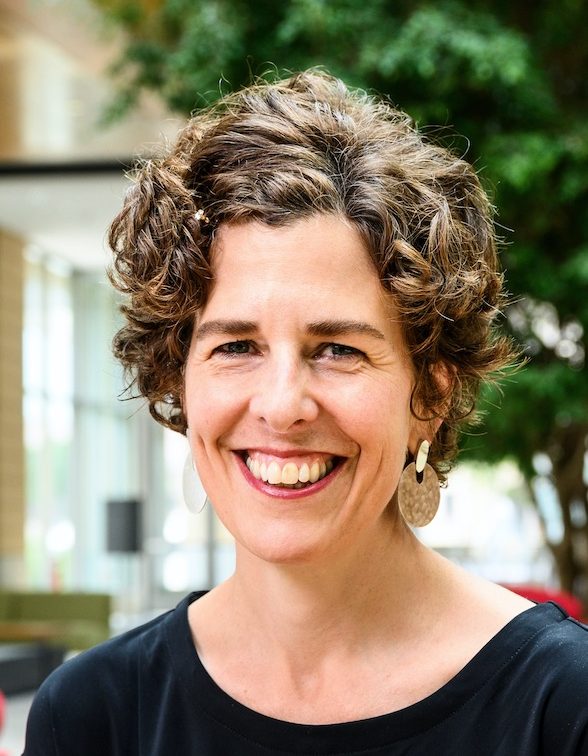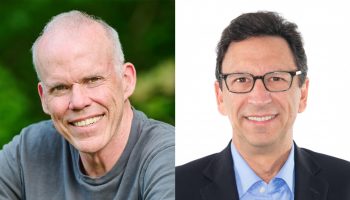ANNALEE HUBBS – COPY & DIGITAL EDITOR

Her Midwestern accent may be a sign that she’s not from around here, but author Katherine Cramer’s origins and scholarship uniquely situate her for a discussion on rural consciousness and the divide between rural and urban areas — it’s a discussion that communities all across the country can relate to.
At 10:30 a.m. Wednesday, July 21 in the Amphitheater, Cramer will give a lecture, titled “Listening to Disrupt,” centered around her book, The Politics of Resentment: Rural Consciousness in Wisconsin and the Rise of Scott Walker as part of Chautauqua Lecture Series’ Week Four theme of “Many Americas: Navigating Our Divides.”
“I would love for people to pause and reflect on what their preconceptions of rural folks in the upper Midwest are and whether these dynamics are reflective of a split in perspective between the coasts and central parts of the U.S.,” Cramer said.
Cramer’s book focuses on the common feeling among people in rural places — like Wisconsin, where her research is primarily based, but also in other small communities outside metropolitan areas — of not getting their fair share. She said there’s a sense of feeling left behind, feeling like citizens aren’t getting what they deserve in terms of resources from taxpayer dollars, and failing to get attention and respect from decision makers.
The Politics of Resentment is based on the sentiments Cramer has heard from inviting herself into conversations around Wisconsin.
“The book is also about the way politicians in our current era make use of that sentiment and tap into it to convince people that the government is the problem,” Cramer said, “and that since the government has been ignoring them, the solution is to have less of it, as opposed to reforming government, or reforming the way our representation works, so that people can have their voices heard and acted on.”
Cramer is the Natalie C. Holton Chair of Letters & Science and a professor in the political science department at the University of Wisconsin-Madison.
She is also a visiting professor with the Center for Constructive Communication at the MIT Media Lab.
She considers herself a public opinion scholar, and the political science program at the University of Michigan, where she got her doctorate, is widely known for survey research.
“When you tell people this, they assume you field surveys and analyze the opinion data,” Cramer said. “But I don’t do that, exactly.”
Cramer definitely makes use of polls, but she learned pretty early on that what fascinates her most is how people make sense of politics and how they do that through talking with other people in their lives. The University of Michigan was great training in survey research, she said, but it inspired her to study public opinion in a different way — by listening.
With respect to what people in the country think and feel and want from their government, we have a real deficit of information — a real lack of information about what people who are unlike us think.”
– Katherine Cramer, Natalie C. Holton Chair of Letters & Science, University of Wisconsin-Madison
In her lecture today, Cramer will also discuss how her understanding of public opinion has changed since the 2016 presidential election. Overnight, when Donald Trump won, people around the country and globe were calling on her to explain to them what people in rural Wisconsin were thinking.
“I’m really not a spokesperson for rural Wisconsinites, and the kind of sentiment I describe is not necessarily felt by everybody in rural Wisconsin, but I was happy to step into that role to try to help people understand,” she said.
Cramer said our understanding of public opinion is shallow in this country — that people often think they’re suffering from information overload when it’s really the opposite.
“With respect to what people in the country think and feel and want from their government, we have a real deficit of information — a real lack of information about what people who are unlike us think,” she said.
Much of the information comes from the coasts, so people in the middle of the country often feel like they don’t get a lot of attention, Cramer said, and that people on the coast don’t understand their lives.
The rural/urban divide is one of the fundamental disconnects in the U.S. right now, Cramer said, and it’s important to pay attention to and to understand because many of the other U.S. divisions are wrapped up within it — including racial divisions.
“Especially in the north, in the upper Midwest, where our rural areas are very, very white and there’s very few people of color,” she said, “our racial divides are represented by our geographic divides and our economic divides.”
Cramer plans to talk quite a bit about the complexity of racism in the U.S., and she hopes that it, along with her other topics, spurs a conversation.
“I’m really excited to be in the midst of so many people who are deeply concerned about the world and who are trying to better understand it,” she said.




